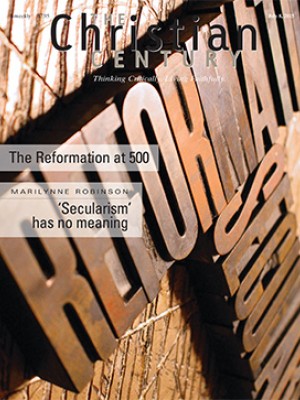July 19, Ordinary 16B: Mark 6:30-34, 53-56
“Many were coming and going, and they had no leisure, even to eat.” I think of the many lunches spent at my computer with a sandwich.
At a faculty council meeting a few years back, a colleague raised what I thought was the best question of the year: “When are we going to stop rewarding each other for doing too much?”
I admired her for asking it. It was rooted in sound theology. I was working at a Christian college where we had reason to ask ourselves why our stress levels, overcommitment, and fatigue reflected so little collective attention to sabbath rest. Our sabbaticals were expected to be productive, our weekends cheerfully interrupted by college activities that counted as community service.
We were, I think, no worse in this respect than other Christian colleges, and certainly no worse than most American workplaces; as a nation we work more hours than most, though we are not necessarily the most productive. But my colleagues and I did participate in a pathology that Jesus sought to heal among his disciples, as we see in this week’s Gospel passage and others in which he calls them to rest or models the practice himself.
Read our latest issue or browse back issues.
When the disciples tell Jesus “all that they had done and taught,” it may be with some expectation of praise for a job well done. They are energetic, committed, and sacrificial. They are growing in their faith and inspiring others. The crowds of followers have mushroomed.
But Jesus doesn’t praise them for their diligence—at least not in such a way as to make the editorial cut when the encounter was recorded. He tells them to come away to a deserted place where they can be all by themselves. No admiring crowd. No record keepers. No trainees. None of the needy, who will have to rely on others for a time. For, Mark writes, “many were coming and going, and they had no leisure, even to eat.” It is hard for me to read this last observation without a little uneasy laughter, thinking of many lunches spent at my computer with a sandwich.
Time to eat may be one of the better measures of the health of a workplace and a community. Where there is no time to eat, fellowship diminishes. Conversation suffers. Morale sinks. When I began working at the aforementioned college, our department was in the habit—already quaint by some standards—of gathering once a week for tea in the common room. No agenda. Just tea and conversation, now and then a shared reading, occasionally a birthday celebration. It was lovely. We didn’t invite colleagues, and no one signed up to do extra tasks. It was a small department, and we knew one another well, in part because we had tea together on Thursday afternoons.
Alas, this custom gave way under the pressure of increased committees, commitments, and administrative demands for documentation. We assessed more and enjoyed each other less. We kept no Thursday “sabbath”; we ate more solitary lunches behind closed doors. Friendships have survived, but not the same level of day-to-day mutual awareness.
The Gospel story continues by reporting, perhaps with a bit of grim humor, that the crowd finds out where the retreating disciples are going and hastens there ahead of them, gathering steam and stray villagers as they go. So much for the weekend retreat. Jesus, seeing them, “had compassion on them.” They “rushed about the whole region,” bringing their sick. It doesn’t say whether the disciples get their rest. But the story does alert us to the fact that just because we decide to take a sabbath rest or a minivacation or a spa day, we have no guarantee that others will respect our needs and withhold their demands. Our rest, if we are to have it, will have to be claimed in the midst of the noise and haste, in spite of others’ agendas, and with a clear intention to honor the countercultural priorities our faith encourages.
Rest—real rest, not guilt-ridden “stolen time”—comes only as a function of trust. I have to trust that others will take care of what I cannot. I have to trust that others will understand my decision to withdraw or, if they don’t, that God will honor a prayerful decision to take my rest when it makes me a better servant. I have to trust that our times are in God’s hands—not only our ultimate destinies but our evenings and weekends and mealtimes and family times.
Rest covers a range of possibilities. The disciples at rest may have fished for their suppers. They may have lain at the lakeside and watched the clouds. They may have made a little music. Some may have left their band of brothers and enjoyed a bit of alone time. Some may have slept in. They very likely ate together. Perhaps they watched the stars and told one another about their dreams.
These things matter. It has occurred to me often that the small things are the big things in disguise. You can’t measure the significance of a shared meal or a walk without a phone or a half hour of quiet with one’s feet up or a game of backgammon before bedtime. You can only observe it in the way pleasure slows and opens the racing heart and surprises the weary spirit.
I do not believe it is God’s will for us to be weary. Rest is always a teacher: God is in charge, and we are not indispensable. Play is a blessing. In laughter we become like little children; in sleep we are watched over; in lingering over a meal we learn something about love we can’t learn anywhere else. And we are better colleagues when we take time to commune over a cup of tea.





